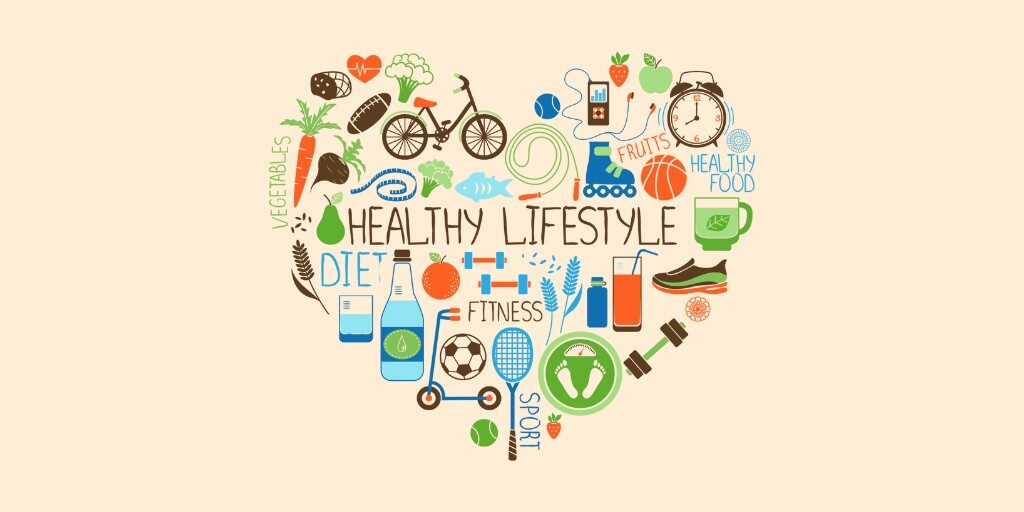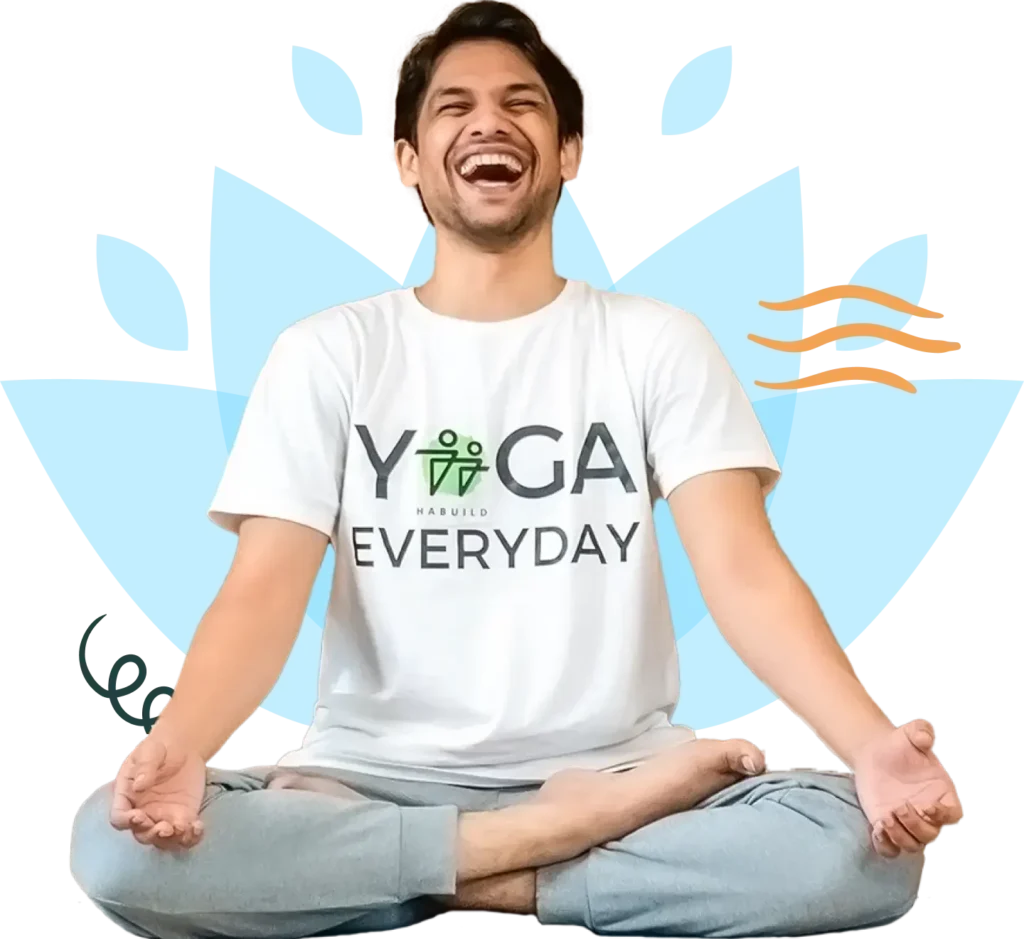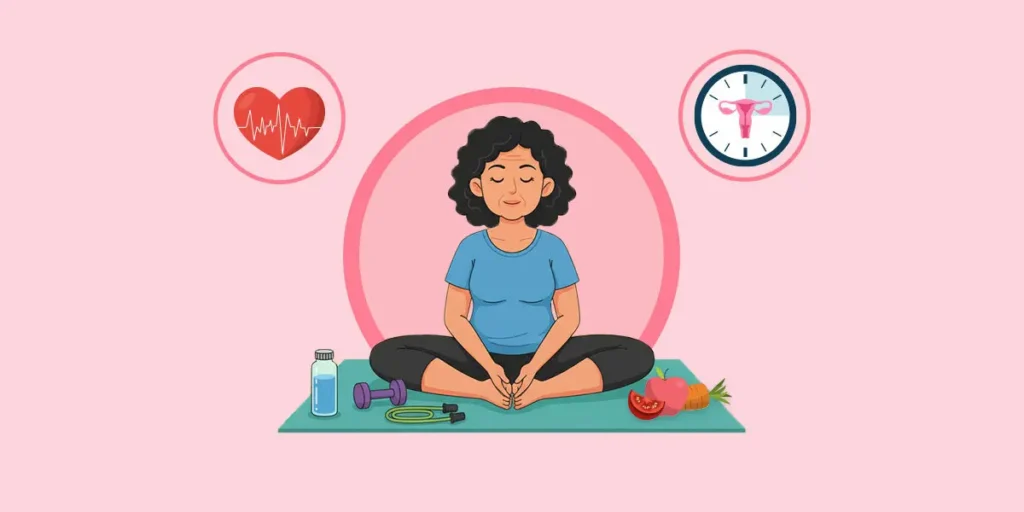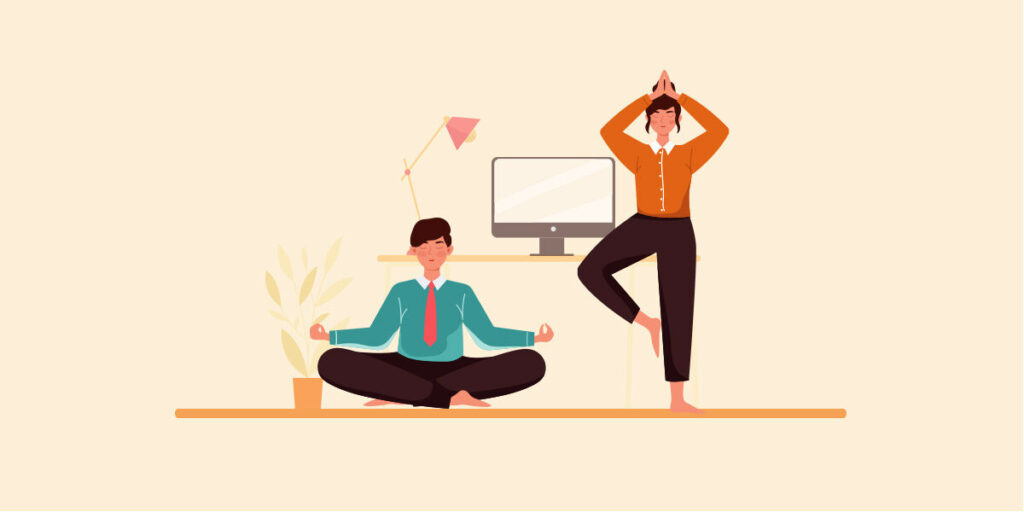In a world where technology dictates our routines, health is often the last thing on our minds. Think about it—how many hours do we spend glued to screens, mindlessly scrolling or binge-watching shows? The convenience of food delivery apps has made us slaves to instant gratification, choosing junk food over home-cooked meals, synthetic supplements over natural nutrition, and packaged snacks filled with preservatives over fresh options. The consequences are dire and visible.

According to Indian Heart Association, “Furthermore, 50% of all heart attacks in Indian men occur under 50 years of age and 25% of all heart attacks in Indian men occur under 40 years of age, Indian women have high mortality rates from cardiac disease as well.”
The abundance of choices has, paradoxically, made us lazy about what really matters—our well-being. When was the last time you paused to think about what you were putting into your body? The colorful, attractively packaged foods lining supermarket shelves often hide harmful preservatives, artificial flavors, and chemicals. Yet, they are easier to grab and eat than preparing a simple, nutritious meal at home.
Healthy lifestyle, balanced eating seems to have taken a back seat. Even dietary supplements, once meant as occasional aids, have become regular substitutes for nutrient-rich meals. We are relying on synthetic pills instead of sourcing nutrients naturally from food. Isn’t it ironic that in the pursuit of convenience, we are choosing shortcuts that are harming us in the long run?
And then there’s the issue of physical activity—or the lack thereof. Many of us lead sedentary lives, spending long hours hunched over laptops or scrolling on our phones. What was once a natural part of life—walking to places, engaging in household chores, or playing outside—has been replaced by virtual interactions and ride-sharing services. Even the occasional attempt at exercise often gets abandoned due to packed schedules and sheer exhaustion.
Health is not a luxury or an afterthought; it’s a daily commitment that should never be negotiable. The good news is that transforming your lifestyle doesn’t require drastic changes—just simple, mindful steps like cooking at home, eating fresh fruits and vegetables, cutting back on packaged snacks, and moving more each day. These small changes can pave the way for a healthier, happier life. The real question is—will you make that choice now or wait for a wake-up call when it might be too late?
Why is Lifestyle Transformation needed?

Lifestyle transformation isn’t like a paracetamol or any magic pill. Rather, it involves adopting a set of sustainable habits that improve your physical, mental, and emotional well-being. You might think that lifestyle changes are only necessary for those who have already developed health problems, but the truth is, the sooner you start, the better it will be.
If you feel constant fatigue, rely too much on fast food or processed food, are always mentally stressed, don’t engage in physical activity, or have trouble falling asleep or staying asleep, then today is the day to start your lifestyle transformation, before it’s too late.
Neglecting your health can lead to serious consequences, making even small lifestyle changes essential.
- Chronic Health Issues: Ignoring your health can lead to serious conditions like heart disease, high blood pressure, diabetes, and obesity. These illnesses not only reduce your quality of life but can also shorten your lifespan.
- Mental Health Struggles: Your physical health is closely linked to your mental well-being. Poor diet, lack of exercise, and chronic stress can increase the risk of anxiety, depression, and other mental health disorders. Inaction can create a vicious cycle where mental health issues exacerbate physical ailments and vice versa.
- Reduced Life Satisfaction: If you continue neglecting your health, you may find yourself dealing with fatigue, pain, and the inability to fully enjoy life. Chronic conditions and low energy can make it difficult to engage in activities you love, impacting your relationships and overall happiness.
- Higher Medical Costs: Prolonged poor health can lead to expensive medical treatments, medications, and hospital visits. The financial cost of managing chronic conditions can be overwhelming, and in many cases, preventable lifestyle changes could have saved you from these expenses.
The major reason why a large chunk of the population struggles to transform their lifestyle is due to two key factors: procrastination and setting impractical goals. This issue affects nearly 95% of people, especially when it comes to stepping out of their comfort zones. Many individuals keep postponing their lifestyle changes, often saying, “I’ll start tomorrow,” “Next Monday,” or “The 1st of the month.” They never take action in the present moment. Even if they manage to overcome their initial procrastination, they often set unrealistic goals within a short time frame. When they don’t see immediate results, they get discouraged and abandon their efforts altogether.
The best advice for successful lifestyle change is to embrace the power of small habits with consistency. You don’t need to make drastic changes overnight. Small, consistent steps can lead to a complete transformation over time. Lifestyle transformation doesn’t require perfection; rather, it requires commitment. The key is to start small and take consistent action. The sooner you begin, the better your future will be. It’s all about taking that first step today, not tomorrow.
What are the pillars of Healthy Lifestyle?
Now that we understand why lifestyle changes matter, let’s break down the essential pillars that support a healthier life. Pillars play a crucial role in supporting a ceiling; if one pillar is misplaced or not positioned correctly, the ceiling becomes unstable. The same analogy applies to the human body. For a healthy and balanced life, five essential pillars must be aligned properly: Right Labor, Right Diet, Right Mental Fitness, Right Yoga and Meditation, and Right Sleep. Each of these elements is vital and interconnected, supporting the overall well-being and stability of an individual’s health.
Right Labor

In today’s fast-paced world, we are gradually losing direct contact with life. Our interactions, once enriched by physical labor and face-to-face connections, have been reduced to fleeting virtual encounters and automated conveniences. Physical engagement with the environment, whether through work or social interactions, is becoming increasingly rare.
When was the last time you walked to your nearest grocery store instead of opting for a delivery app? Or spent time with friends and family in person rather than scrolling through social media? With the advent of advanced technology, life has become more convenient, but at the cost of human connection and physical vitality.
The Centers for Disease Control and Prevention (CDC) recommends at least 150 minutes of moderate-intensity exercise per week. Simple habits like taking the stairs, engaging in household chores, or walking to the grocery store contribute significantly to physical well-being.
Our bodies and minds are designed for movement and engagement. The lack of physical labor has left us disconnected from the simple joys of life and weakened our natural vitality. Tasks that once involved physical effort, like grocery shopping or cooking fresh meals, are now replaced by the instant gratification of online deliveries. Social interactions are often limited to “likes” and “comments” rather than meaningful conversations.
Simple Steps to Reclaim Vitality and Connection:
- Choose Stairs Over Lifts: Whenever possible, take the stairs to boost your physical activity.
- Engage in Household Chores: Spend 15-30 minutes daily on tasks like cleaning or organising.
- Walk to the Store: Instead of using delivery apps, walk to your nearest grocery store to connect with your surroundings.
- Cook Fresh Meals: Prepare and enjoy home-cooked food rather than relying on quick delivery options.
These may seem like small changes, but when practiced consistently, they can create a profound difference in your overall well-being. By embracing these habits, you not only strengthen your physical health but also reconnect with life, people, and the environment in meaningful ways.
Right Diet
Dr Kenneth Walker has said in his autobiography that consistent with his lifelong experiences “whatever people eat, half it fills their stomach and half it fills the stomachs of the doctors”. If they eat only half what they typically eat then they might not vomit in the least, and there would be no need for doctors. Sometimes we eat too much, sometimes we eat too less.
Many people assume that a healthy diet means eating only boiled vegetables, following strict restrictions, and constantly hearing phrases like “you only live once.” However, true healthy eating is far more balanced and enjoyable than these misconceptions suggest. You can enjoy your favorite foods even if they’re high in calories, fat or added sugars. The key is to eat them only once in a while, balancing them out with healthier foods and physical activity. The evidence to date suggests that healthy dietary patterns reduce the risk of major diet-related chronic diseases, such as type 2 diabetes, cardiovascular disease and some cancers.
Few things to keep in mind while having that one bite of cheesecake or one serving of Peri-Peri French Fries.
- Consume it less often. If you normally eat these foods every day, cut back to once a week or once a month.
- Eat smaller amounts of your favorite food or add fruits or vegetables to bulk it up without the added fat or calories.
- Try a lower-calorie version. Use lower-calorie ingredients or prepare it differently.
If we try to dig deeper into diet and want to find the reason why most people have a difficult time in maintaining or sticking to a diet plan, there are also a few myths surrounding it that make it look like a distant dream.
1. You need to eat tasteless food
This is a half-truth statement. While I agree that diet food may not be as tasty as fast food, fast food is far from healthy. The key is maintaining a balance between taste and nutrients. Your plate should include a variety of vegetables, fruits, whole grains, healthy proteins, healthy oils, and plenty of water.
2. You should be in fasting mode
Many believe that following a diet means drastically reducing food intake or skipping meals. A balanced diet focuses on portion control and nutrient-rich food rather than deprivation.
3. Give up your favorite foods
You don’t have to give up all your favorite foods when you’re trying to lose weight. Small amounts of your favorite high-calorie foods may be part of your weight-loss plan. Just remember to keep track of the total calories you take in. To lose weight, you must burn more calories than you take in through food and beverages.
4. Only Salad is Healthy
A common misconception is that salads are the only diet-friendly meals. A wide variety of wholesome foods, including soups, stir-fries, and smoothies, can be part of a balanced diet.
Right Mental Fitness

The W.H.O defines mental health as “a state of well-being in which the individual realizes his or her own abilities, can cope with the normal stresses of life, can work productively and fruitfully, and is able to make a contribution to his or her community.” Despite its importance, there is considerable misunderstanding surrounding mental fitness.
When people hear the term, they often associate it with negative stereotypes, such as being labeled mentally ill or requiring treatment in an asylum. In reality, almost everyone faces mental health challenges at some point, but the stigma often prevents people from openly acknowledging or seeking help. Even well-known personalities from various fields have struggled with mental health issues in the past.
Unfortunately, a multitude of myths continues to circulate, perpetuating misconceptions. It’s time to break the silence and clear the confusion surrounding mental health. Let’s decode some of these myths and foster a more informed and compassionate conversation.
Myth: People with mental health conditions are violent.
Fact: Most people with mental health conditions are no more likely to be violent than anyone else. Only 3%–5% of violent acts can be attributed to individuals living with a serious mental illness. In fact, people with severe mental illnesses are over 10 times more likely to be victims of a violent crime than the general population.
Myth: People are born with a mental illness.
Fact: A vulnerability to some mental illnesses, such as bipolar mood disorder, can run in families. But other people develop mental illness with no family history.
Myth: Mental illness is a form of intellectual disability or brain damage.
Fact: They are illnesses just like any other, such as heart disease, diabetes, and asthma. Yet the traditions of sympathy, support, and flowers given to people with physical illnesses are often denied to those with a mental illness.
Myth: People with a mental illness should be isolated from the community.
Fact: Most people with a mental illness recover quickly and do not need hospital care. Others may have short admissions to hospital for treatment. Only a very small number of people with mental illness (less than 1 in 1000) need hospital care.
Don’t be afraid to seek help—talk to trusted friends, family, or a mental health professional. Prioritise self-care through mindfulness, regular exercise, and journaling, and remember that healing is a journey, not a destination.
Right Sleep

In the hustle culture we live in today, sleep often becomes the first casualty. Late-night binge-watching, endless social media scrolling, and the pressure to work long hours have convinced many of us that sacrificing sleep is a small price to pay for productivity and entertainment. But here’s the harsh reality — neglecting sleep is like withdrawing money from your health savings account without ever depositing back.
”The incidence of sleep deprivation was the highest in the 31–50 age group at 47.91%. Although the incidence rate is very high as 31.66% in the 16–30 age group which indicates chronic sleep deprivation among Indian youth possibly due to changing lifestyle.”
Sleep is the time when your body repairs and rejuvenates itself. During deep sleep, your brain consolidates memories, processes information, and flushes out toxins. At the same time, your muscles repair themselves, and hormones that regulate metabolism and stress are balanced. Skipping this crucial recovery process can lead to poor concentration, irritability, weight gain, weakened immunity, and increased risk of chronic diseases like diabetes and heart conditions.
A good night’s sleep is also essential for emotional stability. Have you ever noticed how everything seems more overwhelming after a bad night’s sleep? That’s because sleep deprivation impairs your brain’s ability to regulate emotions, making you more reactive and less capable of handling stress.
In recent times, usage of smartphones before bedtime is one of the hurdles for your good night sleep, because using smartphones, tablets, or laptops before bedtime exposes you to blue light, which suppresses melatonin production. This hormone is essential for regulating sleep, and its absence can delay sleep onset.
“Maintain a consistent sleep schedule by going to bed and waking up at the same time daily. Limit screen time and caffeine intake at least an hour before bedtime. Create a calm, dark, and comfortable sleep environment to help your body relax.”
In the end, sleep is not a luxury — it’s a necessity. Prioritize it, because when your nights are peaceful, your days are naturally productive, energetic, and joyful. A well-rested mind and body are the foundations of a healthy and fulfilling life.
Right Workout

Imagine this: You wake up feeling groggy despite getting enough hours of sleep. Your mind is already racing with thoughts about pending deadlines and household responsibilities. By midday, stress and fatigue have drained your energy, leaving you irritable and disconnected. Sound familiar? This is the reality for many people in today’s fast-paced world.Amid such chaos, yoga and meditation emerge as lifelines to restore balance and calm.
The word ‘yoga’ means ‘union’ or ‘yoke’ or ‘joining’. Originally, yoga was a method for joining a regular imperfect human being with the divine principle, or God. It is aimed to unite the mind, the body and the spirit. Through the practice of yoga, the mind can be trained to relax through deep breathing and become focused while holding the breath.
The process is gradual but the effects, if yoga continues to be practiced, are lasting.Performance of various postures requires the tensing and stretching and then relaxing of muscle groups and joints, which effectively produces relaxation in much the same way that a massage does.The National Center for Complementary and Integrative Health (NCCIH) highlights that yoga helps reduce anxiety, improve heart health, and enhance sleep quality.
Meditation steps in as a beacon of calm amidst the chaos. Meditation isn’t about emptying your mind of thoughts or sitting in a perfect lotus position for hours. It’s about taking a few moments to pause, breathe, and reconnect with yourself. It’s a simple yet powerful practice that can transform the way you experience stress, relationships, and even your health.
Meditation can be defined as a practice where an individual focuses their mind on a particular object, thought or activity to achieve a mentally clear and emotionally calm state. Meditation may be used to reduce stress, anxiety, depression and pain. Meditation is a precise technique for resting the mind and attaining a state of consciousness that is totally different from normal walking.
A common issue faced by people during meditation is the inability to focus on a single point, as their minds tend to wander. Many mistakenly believe that this means they are incapable of meditating. However, it is completely natural. The key is to gently and repeatedly bring your attention back to the focus point. This itself is part of meditation. Meditation doesn’t require a perfectly still mind; it’s about cultivating awareness and guiding your attention back whenever it strays.
Anything outside of our comfort zone is often difficult to integrate into daily life. If you begin yoga with the unrealistic goal of mastering advanced asanas immediately, you’re likely to face disappointment. Remember, our primary goal of yoga is not to prepare for some competitions but to maintain good health and harmony of mind and body.
The key is consistency. Start with small steps and basic asanas; once you feel comfortable, gradually progress to more advanced poses.
A simple routine of 10 minutes of Basic Yoga or Surya Namaskar, followed by 5 minutes of meditation and pranayama, is enough to get you started on a transformative journey.Nothing fancy, No equipment required, Just self belief.
Transformation Steps

Transforming your lifestyle may seem overwhelming, but it doesn’t have to be. Often, it’s the small, consistent changes that create lasting results. Think of every healthy choice as a brick you’re laying to build a better, stronger future. From tweaking your morning routine to making mindful dietary practical steps can lead you toward the vibrant, fulfilling life you deserve. Some of the small tweaks in daily routines that will make all the difference.
1. Morning Rituals
Your morning sets the tone for the entire day. Developing a mindful morning routine can boost your productivity and mental clarity. Start with simple steps like:
- Hydrate: Drink a glass of warm water to rehydrate and kickstart digestion.
- Stretch or Exercise: Spend 10-15 minutes stretching or engaging in light physical activity.
- Sun over Phone: Spend time in sunlight in morning hours rather than picking up your phone
- Healthy Breakfast: Prioritize a nutrient-rich breakfast to fuel your body.
2. Diet Detox
Clean eating doesn’t have to be complicated. Start by:
- Eliminating Processed Foods: Focus on whole, fresh ingredients.
- Hydration: Drink plenty of water throughout the day.
- Incorporate Superfoods: Add leafy greens, nuts, and seeds to meals.
- Limit Sugar and Caffeine: Opt for natural sweeteners and herbal teas instead.
3. Fitness Routine
Physical activity should be enjoyable and sustainable.
- Start Small: Walk for 20 minutes daily if you’re new to exercise.
- Mix It Up: Combine strength training, yoga, and cardio for variety.
- Consistency Over Intensity: Aim for consistency rather than high-intensity workouts.
- Find a Workout Buddy: Accountability can keep you motivated.
Small changes that will create all the difference:

As Julia Carney stated,” Little drops of water make the mighty ocean.” Similar to that, incorporating small changes into your schedule will lead to better health.
No Alcohol & Drugs
Alcohol has become a popular party staple, often seen as a symbol of being “cool” or fitting in at social gatherings. Those who choose not to consume it are sometimes unfairly perceived as outsiders. The rise in hookah, vape, and cigarette usage is also contributing to long-term health issues, acting as a slow poison. A common societal belief is that “a little alcohol is good for health.” However, the World Health Organisation recently published a statement in The Lancet Public Health, confirming that no amount of alcohol is safe for health. So, the next time you’re offered a drink at a party or function, politely refuse because your health is your greatest wealth.
Social Media Detox
According to Redseer Consultancy, the average daily smartphone usage is 7.3 hours in India, 7.1 hours in the USA, 5.1 hours in China, and a staggering 9.1 hours in Thailand. On average, people spend around 30% of their time on mobile phones. This is where a social media detox can be a game-changer.
A detox doesn’t mean deleting all your apps forever; it’s about setting boundaries. Designate “no-phone zones” during meals or limit your daily social media usage to 30 minutes. Unplug a few hours before bedtime for better sleep and a more refreshed morning. Use that reclaimed time for meaningful activities i.e. reading, walking, or simply enjoying a mindful cup of tea.
Keeping body hydrated
Water is the elixir of life, yet it’s often overlooked in our busy routines. Staying properly hydrated is essential for maintaining energy levels, enhancing cognitive function, and supporting vital bodily processes like digestion and temperature regulation.
To maintain optimal hydration, aim to drink at least 8-10 glasses of water daily. If plain water feels monotonous, infuse it with slices of lemon, cucumber, or mint for a refreshing twist. Herbal teas and coconut water are also great alternatives. Remember that foods with high water content, such as cucumbers, watermelon, and oranges, can supplement your hydration needs. Keep a reusable water bottle with you throughout the day as a reminder to sip regularly.
Bottled juices are often loaded with sugar and preservatives, making them a poor choice for hydration, stick to plain water or naturally infused drinks for the best results.
Social Meetups
In today’s world of social media dominance, face-to-face meetings are becoming rare. While digital chats make communication faster, they can’t replicate the warmth and authenticity of in-person interactions. There’s a unique emotional connection that comes from real conversations, strengthening bonds and improving emotional well-being. Ironically, social media has reduced physical distances but created emotional gaps among loved ones.
In a meta-analysis by Holt-Lunstad and colleagues at Brigham Young University, “They examined and reported that social connections with friends, family, neighbors, or colleagues improves the odds of survival by 50%. Low social interaction was reported to be similar to smoking 15 cigarettes a day and to being an alcoholic, to be more harmful than not exercising, and to be twice as harmful as obesity”. Prioritising social meetups over screen time can combat loneliness and foster stronger relationships.
So next time, instead of sending a text, meet in person it’s a simple yet powerful way to reconnect and nurture meaningful connections.
Mindful Journaling
In the hustle of everyday life, our thoughts often get tangled, leaving us overwhelmed. Mindful journaling offers a way to untangle those thoughts and gain clarity. It’s not about crafting perfect sentences but simply writing down your thoughts, feelings, and reflections without judgment. By penning down even a few lines daily, you create a safe space for self-expression and emotional release. It helps in identifying patterns, tracking progress, and cultivating gratitude. According to a study by JMIR mental health ,”Positive Affect Journaling was associated with decreased mental distress and increased well-being relative to baseline”.
Whether it’s in the morning to set intentions or at night to reflect, journaling can be a grounding practice that nurtures mental and emotional well-being.
Challenges you will be facing in your Journey

It’s completely normal to face challenges when starting something new; it’s all about how you choose to approach them as steps to climb or as obstacles. Here are some common challenges you may encounter, along with a reminder of why you won’t give up.
No significant improvement in initial days
Lifestyle changes involve a lot of things and doing them for a long time only guarantees results. There will be many instances where you won’t be seeing any significant changes. This is the time when you need to push even harder because good health is just a few miles away from there. Consider it as a Marathon, not sprint and patience is the key.
Social and cultural pressure
Social gatherings, celebrations, and cultural traditions can make it challenging to maintain dietary discipline, regular exercise, or mental well-being practices. You can still enjoy events while keeping health priority – focus on portion control, plan your meals ahead, choose healthier options from the buffet, stay hydrated, incorporate light exercise when possible.
Breaking old habits
Our daily routines are shaped by long-standing habits, many of which are difficult to break. For instance, mindlessly scrolling on social media before bed or reaching for packaged snacks can be deeply ingrained behaviors. Overcoming these requires conscious effort and consistency.
Misleading information
The internet is flooded with information on health and wellness. Unfortunately, not all of it is accurate. Diet fads and extreme workout regimes often promise unrealistic results, leading to disappointment. Adopting science-backed, sustainable practices is essential.
How can you track your progress?

Lifestyle transformation is a journey, not a destination, and tracking your progress plays a vital role in keeping you motivated and on track. Without proper measurement, it becomes difficult to understand what’s working and what needs adjustment. Monitoring your transformation allows you to celebrate small victories and identify areas where you may be struggling.
Setting Clear Goals
The first step in tracking progress is defining specific, achievable goals. Avoid vague objectives like “I want to be healthier”, instead make it like “Drink 10 glasses of water”, “Burn 500 calories today”
App based Tracking or Journaling
You can use apps to keep track of workout, steps and calorie consumption or can write about your experience in a journal. It will help to know what works positively or negatively and you can improve upon it.
Regular Health Check
Schedule periodic check-ins of Blood Sugar, Blood pressure, Cholesterol, Weight and BMI provides concrete data on how your lifestyle changes are impacting your health.
Celebrate Small Wins
Acknowledging small victories is crucial for maintaining motivation. Reward yourself for meeting milestones, such as enjoying a relaxing spa day or buying new workout gear. Shift the focus from perfection to progress , celebrate sticking to your routine even when the results are slow. Small rewards help reinforce positive behaviour and make the journey enjoyable.
Tracking progress keeps you accountable and reminds you that transformation is a process. It offers tangible proof of your efforts, providing motivation to stay on track. More importantly, it builds awareness of your choices and helps create a lifelong habit of mindful living.
Final Thoughts
After reading about lifestyle transformation, its pillars, challenges, and practical steps, the most important question remains, are you ready to take action? This is your wake-up call. Life doesn’t wait, and neither should you when it comes to your health and well-being. Procrastinating on these decisions today can lead to consequences that might not be reversible tomorrow.
You don’t need to overhaul your life in a single day. Small, intentional steps can make all the difference. Whether it’s choosing to cook one healthy meal, taking a 15-minute walk, drinking more water, or practicing mindfulness for five minutes, it all adds up. Consistency, not perfection, is the key to lasting transformation.
Because “Abhi nahi to kabhi nahi”.
It’s never too late to start your yoga journey. Join our Free 14-Day Yoga Challenge and give your body the care it deserves. With daily sessions designed for all levels, you’ll improve your flexibility, build strength, and boost your mood. Sign up now to begin your transformation!






